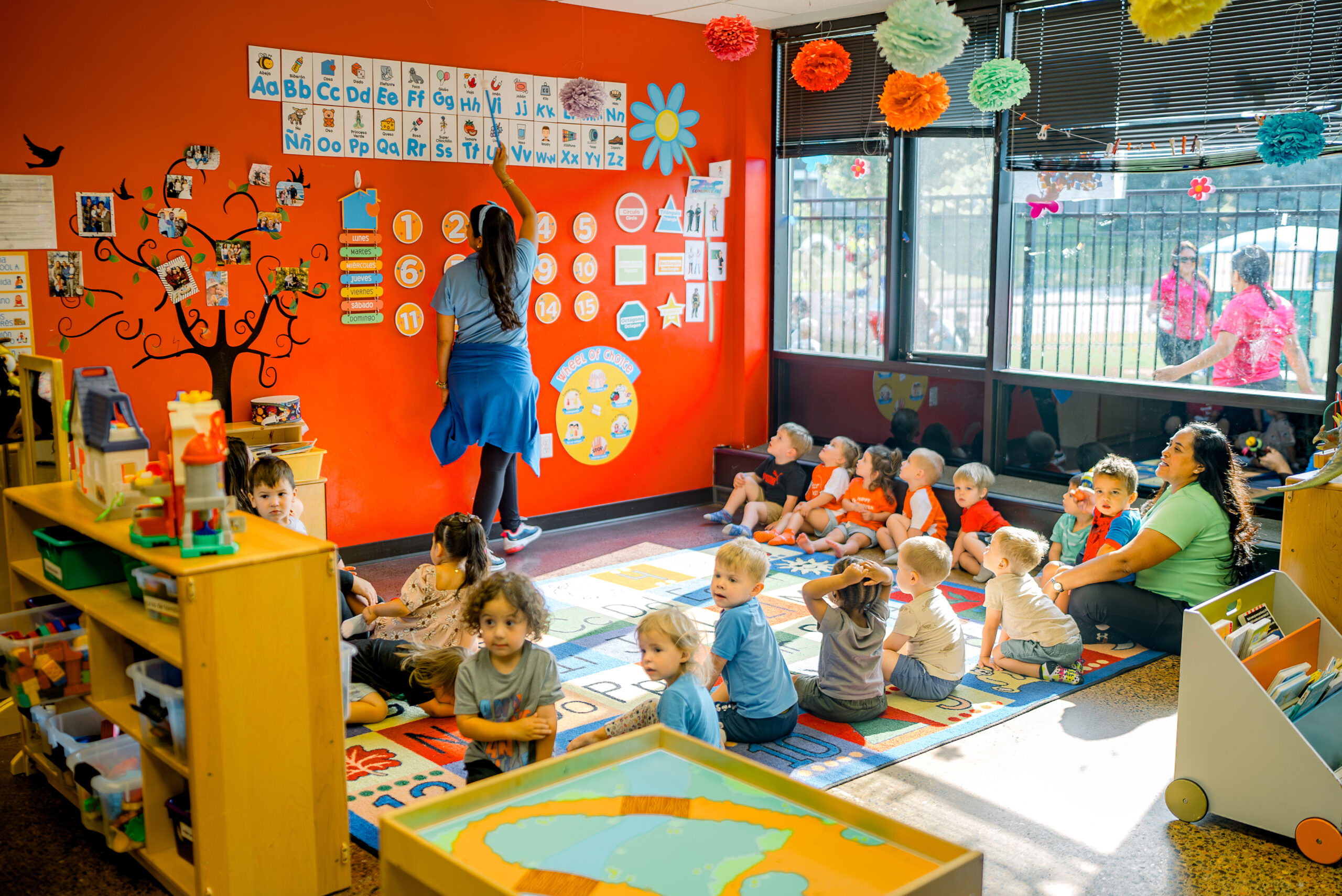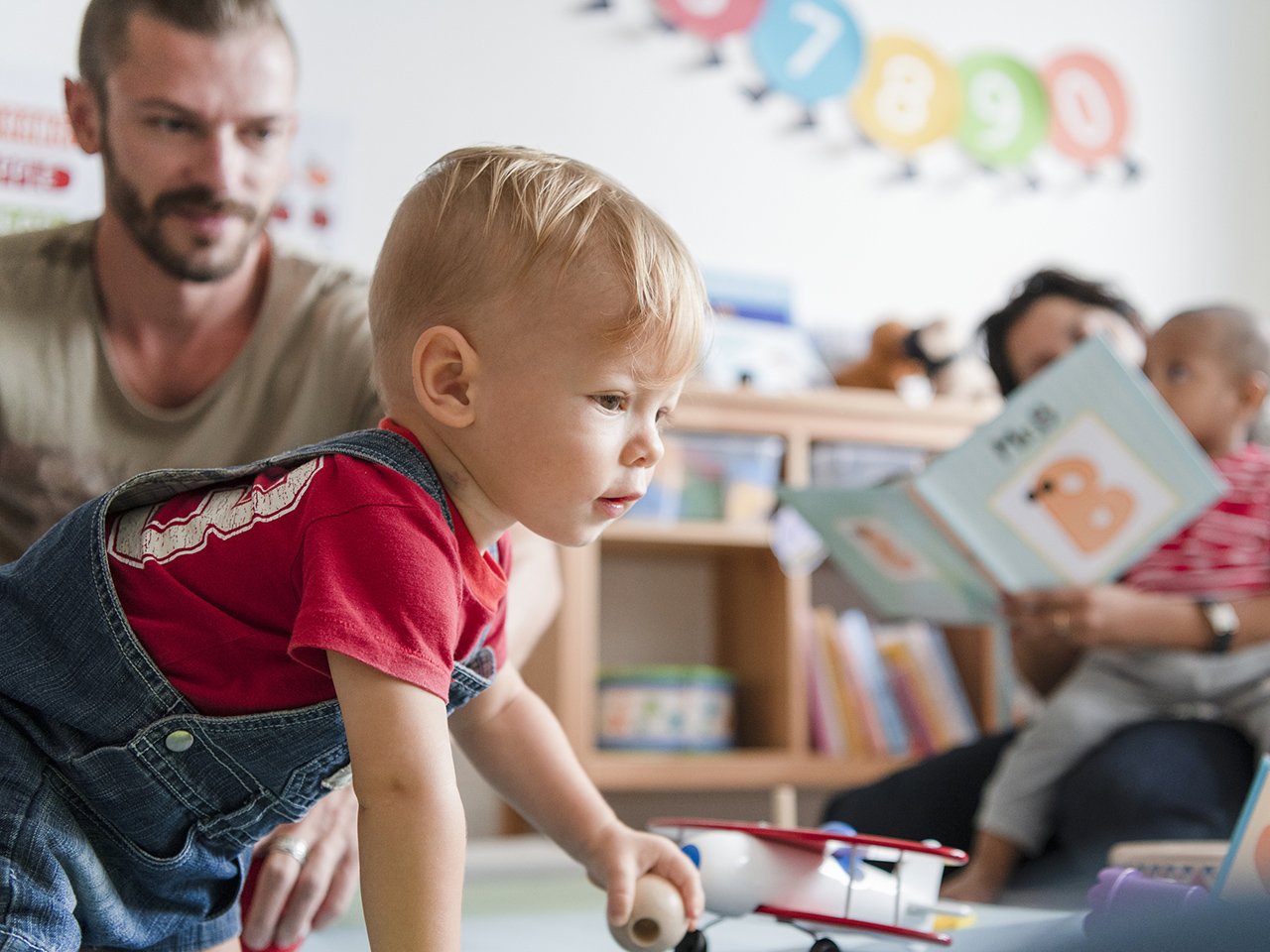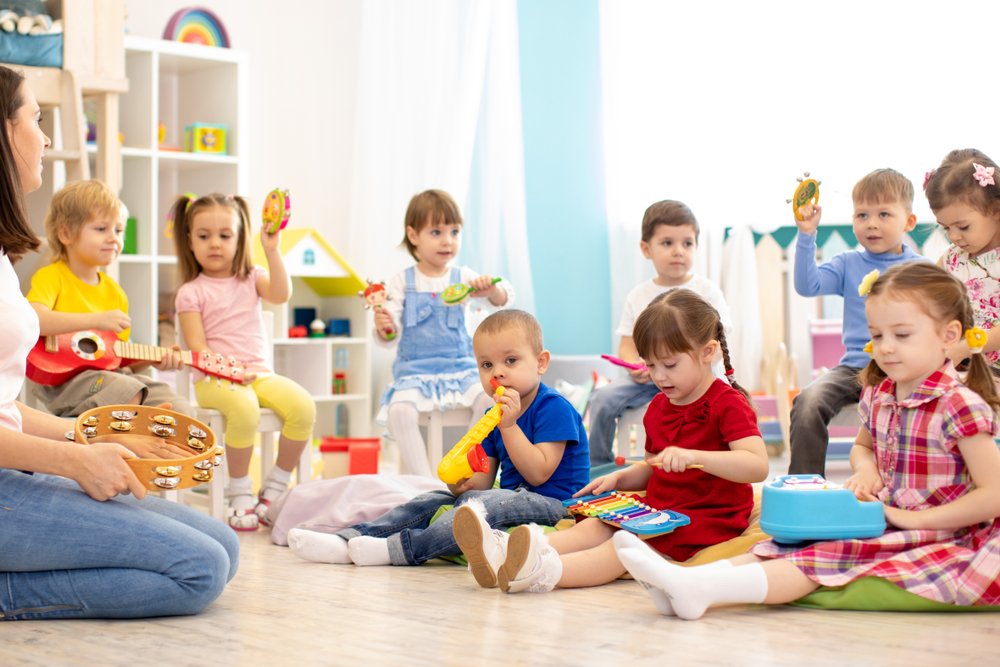What To Look For When Evaluating A Child Care Center Near You
The Function of DAYCARE in Fostering Social Skills and Very Early Understanding
Daycare acts as a significant atmosphere for young kids, helping with crucial social interactions that promote early discovering. In this structured setting, children involve with peers and caregivers, developing vital interaction and participation abilities. As they navigate play and various tasks, they learn to settle disputes and construct psychological intelligence. Comprehending the subtleties of these interactions reveals the profound effect daycare carries a youngster's development, forming their future connections and scholastic preparedness. What certain abilities do children acquire in this setting?
The Significance of Social Communication in Day Care
While many moms and dads identify the value of early childhood education and learning, the duty of social communication in day care is typically taken too lightly. Day care settings supply youngsters with important chances to engage with peers, promoting crucial social abilities. Throughout these developmental years, youngsters learn to browse various social characteristics, such as sharing, participation, and dispute resolution. Engaging with varied age groups and characters enhances their ability to adapt to different environments and develop empathy towards others.

Building Interaction Skills With Play
Play offers as a powerful tool for youngsters to develop critical interaction abilities in daycare setups. Via numerous play activities, children talk, express their ideas, and learn to listen to others. Role-playing video games, for instance, urge them to make use of language in different contexts, advertising vocabulary expansion and understanding of social hints.

Narration during playtime enables kids to communicate ideas and emotions, assisting them create narrative skills and confidence in their spoken expressions. On the whole, play not just acts as a delightful activity yet also as a crucial platform for establishing the communication abilities essential for effective social interactions in later life.
Motivating Collaboration and Teamwork
Collaboration and teamwork are essential skills that youngsters can grow in day care environments. Through various team tasks, such as building jobs or joint video games, kids find out to share obligations and pursue usual goals. These communications promote an understanding of the importance of paying attention to others, discussing duties, and jeopardizing when essential.
In childcare setups, caretakers typically create opportunities for youngsters to participate in teamwork by urging them to take part in team tasks. This not only assists children establish social bonds yet additionally grows a sense of belonging and community.
As they navigate these participating experiences, kids acquire important insights into the characteristics of dealing with peers. They find out to value diverse point of views and acknowledge that each member adds distinctively to the group initiative. Eventually, these early lessons in cooperation and synergy lay the foundation for much healthier connections and effective cooperation in future social and scholastic settings.
Structured Discovering Activities and Cognitive Advancement
Structured knowing activities play an indispensable duty in promoting cognitive development in young kids (Child Care Center). These tasks, that include problems, storytelling, and hands-on experiments, boost critical reasoning and go to the website problem-solving skills. In a childcare setting, structured understanding encourages kids to involve with their peers, boosting their ability to process details and understand different ideas
Via directed play and interactive jobs, youngsters develop foundational abilities such as numeracy and proficiency. Activities focused around numbers can aid youngsters comprehend mathematical concepts, while storytelling improves language procurement and comprehension. Furthermore, organized learning allows teachers to evaluate developmental development and dressmaker tasks to private understanding needs.

Integrating a varied variety of organized tasks not just promotes cognitive growth however likewise prepares kids for future academic success. By providing a balanced setting that cultivates expedition and inquiry, daycare programs play an important role fit the cognitive capabilities of young learners.
Fostering Psychological Intelligence and Confidence
Emotional knowledge and confidence are important components of a youngster's advancement, complementing the cognitive abilities fostered via structured understanding tasks. In daycare setups, kids are provided with possibilities to reveal their emotions and participate in social interactions, which are crucial for building psychological awareness. Via assisted play and group tasks, kids discover to identify their feelings, identify those of others, and establish empathy.
Furthermore, interaction with peers and caretakers aids to cultivate self-worth and durability. Positive reinforcement and motivation from grownups encourage youngsters to take risks and face difficulties, fostering a sense of success. As they browse social dynamics, kids develop self-confidence in their capacities to interact, work together, and resolve Click This Link conflicts - Child Care Center. This nurturing atmosphere enables the progressive growth of psychological intelligence, which is necessary for future interpersonal partnerships and total well-being. Therefore, childcare plays a significant function in cultivating both psychological intelligence and confidence in children
Regularly Asked Questions
Exactly How Can Moms And Dads Select the Right Childcare for Their Child?
Moms and dads need to think about aspects such as location, personnel credentials, safety standards, curriculum, and evaluates from other parents when choosing the ideal childcare for their youngster, guaranteeing it straightens with their child's developmental needs and family values.
What Age Is Finest for Beginning Childcare?

Exactly How Does Daycare Effect Kid's Behavior in the house?
Daycare frequently favorably influences youngsters's habits at home by enhancing social skills, promoting self-reliance, and encouraging emotional policy (Daycare North York). Consequently, see post youngsters might display better communication and cooperation, causing more harmonious household characteristics
Are There Any Type Of Drawbacks to Childcare Attendance?
Yes, there are drawbacks to childcare attendance, including prospective splitting up anxiousness, exposure to health problems, and inconsistent caregiving. These elements can influence a child's psychological wellness and change in your home, impacting general family members dynamics.
Just How Can Parents Assistance Social Abilities Found Out at Daycare?
Parents can support social skills discovered at childcare by helping with playdates, urging cooperative activities, modeling favorable interactions, going over sensations, and reinforcing sharing and interaction at home, thus enhancing their child's social development and confidence.
Childcare offers as a considerable atmosphere for young youngsters, facilitating essential social interactions that promote early knowing. Daycare settings provide children with vital possibilities to involve with peers, fostering necessary social abilities. Play offers as an effective tool for youngsters to construct crucial interaction skills in day care settings. In childcare setups, kids are supplied with chances to reveal their emotions and involve in social communications, which are important for developing emotional awareness. Daycare often positively influences children's behavior at home by improving social skills, advertising independence, and motivating psychological regulation.